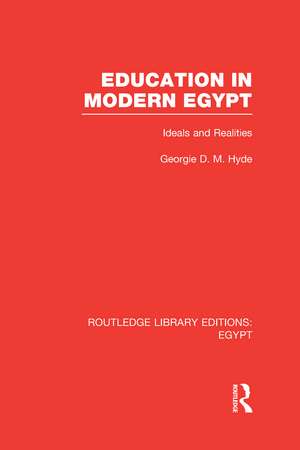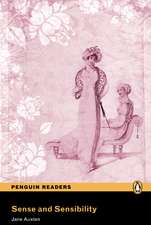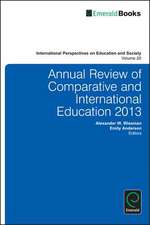Education in Modern Egypt (RLE Egypt): Ideals and Realities: Routledge Library Editions: Egypt
Autor Georgie Hydeen Limba Engleză Hardback – 23 noi 2012
Professor Hyde has analysed the problems of the educational system, administrative, institutional, theoretical and practical, and related them to Egypt’s urgent need to modernise the state, and to improve the quality of life of her hitherto deprived masses. The deficiencies of the system are discussed with emphasis on the attempts to provide solutions, mainly within the framework of reformed institutions. Informal and private education, literacy campaigns, women’s aspirations and student welfare are all considered, as are policies and plans for the immediate and long-term solutions of Egypt’s problems. The analysis also takes into account socio-economic factors in post-Revolutionary Egypt which not only constitute instruments of change in Egyptian society but also provide the restraints which prevent the rapid translation of educational ideals into reality.
First published 1978.
Preț: 767.93 lei
Preț vechi: 1156.77 lei
-34% Nou
Puncte Express: 1152
Preț estimativ în valută:
146.94€ • 153.83$ • 121.59£
146.94€ • 153.83$ • 121.59£
Carte tipărită la comandă
Livrare economică 07-21 aprilie
Preluare comenzi: 021 569.72.76
Specificații
ISBN-13: 9780415811118
ISBN-10: 0415811112
Pagini: 268
Dimensiuni: 156 x 234 mm
Greutate: 0.66 kg
Ediția:1
Editura: Taylor & Francis
Colecția Routledge
Seria Routledge Library Editions: Egypt
Locul publicării:Oxford, United Kingdom
ISBN-10: 0415811112
Pagini: 268
Dimensiuni: 156 x 234 mm
Greutate: 0.66 kg
Ediția:1
Editura: Taylor & Francis
Colecția Routledge
Seria Routledge Library Editions: Egypt
Locul publicării:Oxford, United Kingdom
Cuprins
Acknowledgements. World education series. General editor’s introduction. Preface by Dr A. A. El-Koussy. 1. The context of education in modern Egypt: Introduction. The constitution of 1956. Some post-revolutionary issues and their implications for education. Expressed policies 2. Problems related to education: The ‘problem approach’ in comparative education. Modernization. Population explosion: family planning education. Manpower problems. Women in modern Egypt: family and community education. Wastage. Quality of education. Problems of children and youth 3. The education system: problems of control: Centralization vs decentralization. The structure and scope of the Ministries of Education. Planning. Finance 4. The educational ladder: problems as seen by the administration. Primary schools. The one-class school. Preparatory schools. The eight-year school. Secondary schools. Teacher education and practice. Adult education 5. Higher education: the role of higher education in finding solutions to Egypt’s problems. The scope of higher education. Scientific planning, research and organizations. The universities. Medical education. Engineering education and training. Science and technology. Agricultural education. Cultural borrowing 6. Other agencies of education. The government sector. The ministry of Al-Azhar affairs. The ministry of culture. The ministry of youth. The private sector 7. Student welfare: Health services. School psychological and social services 8. Plans and trends: Trends. The search for an ideal system of education. Expressed plans (1976-80). Renascence in Egyptian education?. Appendix 1. Faculties in the American University of Cairo Appendix 2. Some faculties in the University of Ain Shams. Bibliography. Index.
Descriere
This study gives a comprehensive account of the evolution of the educational system in Modern Egypt, set against the events of the last twenty five years. From the Revolution of 1952, which saw the breakdown of the party system, seen as ‘sham democracy’, to the re-adoption of the party system in 1976, the Egyptian government has searched for an ideal system that is secular, but not irreligious, and benefitting from, but not copying, the western or eastern models. Professor Hyde has analysed the problems of the educational system, administrative, institutional, theoretical and practical, and related them to Egypt’s urgent need to modernise the state.




















